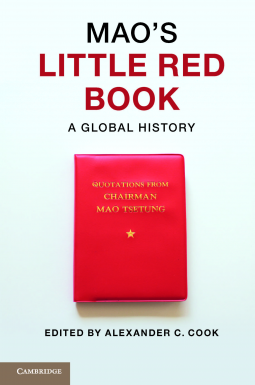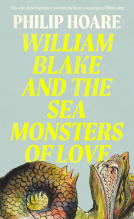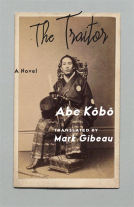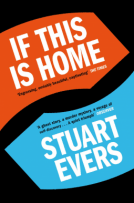
Mao's Little Red Book
A Global History
by Edited by Alexander C. Cook
This title was previously available on NetGalley and is now archived.
Send NetGalley books directly to your Kindle or Kindle app
1
To read on a Kindle or Kindle app, please add kindle@netgalley.com as an approved email address to receive files in your Amazon account. Click here for step-by-step instructions.
2
Also find your Kindle email address within your Amazon account, and enter it here.
Pub Date 14 Apr 2014 | Archive Date 1 Aug 2014
Description
In time for the 50th anniversary of an enduring symbol of twentieth century radicalism...
Published for the first time in 1964, Mao Zedong's Little Red Book—a compilation of Chairman Mao's statements and political pamphlets—rapidly became the must-have accessory for red guards and revolutionaries from Berkeley to Bamako. Yet, despite its worldwide circulation and enduring presence there has been no serious scholarly effort to understand this seminal text as a global historical phenomenon—until now.
Mao's Little Red Book brings together a range of innovative scholars from around the world to explore the fascinating variety of uses and forms that the Little Red Book has taken, including rhetoric, art and song, accessory, symbol, badge, and weapon. The contributors to this pioneering volume use Mao's Quotations as a medium through which to re-examine the history of the twentieth-century world, challenging established ideas about the book to reveal its remarkable global impact.
Advance Praise
"Its earliest editions may have been blue and green, we now learn, but it is as the Little Red Book that the Quotations from Chairman Mao became known the world over. Half a century ago, its pithy slogans energized and guided restless revolutionaries in places as far apart as Oakland, Dar es Salam, Paris and Ayacucho. In this groundbreaking critical history, the authors weave sympathetic understanding and perceptive analyses into a fascinating account of the book and its global influence."
Michael Schoenhals, Lund University, editor of China's Cultural Revolution, 1966–1969: Not a Dinner Party (1996) and co-author of Mao's Last Revolution (2006)
Marketing Plan
Advance reading copies available
National print, broadcast, digital media campaign
Social media promotion on Facebook and Twitter
Advance reading copies available
National print, broadcast, digital media campaign
Social media promotion on Facebook and Twitter
Available Editions
| EDITION | Paperback |
| ISBN | 9781107665644 |
| PRICE | US$27.99 (USD) |
Average rating from 8 members
Featured Reviews
 Kel M, Media/Journalist
Kel M, Media/Journalist
Little read, now—but, oh, back in the day!
Mao’s Little Red Book: A Global History, Alexander C. Cook, editor (Cambridge University Press, $27.99).
We live in a time when Chairman Mao is more of a cultural memory than a political lodestar, but it wasn’t always so—and that’s the heart of this collection of essays on “The Little Red Book,” the collection of political commentary by Mao Tse-Tung that was well known throughout the ’60s and ’70s.
Edited by UC Berkeley professor of history Alexander C. Cook, the collection has 15 essays that place the book in an international context. Most essayists point out that, in China, the excerpts in the book existed within a larger and familiar body of work, whereas quotes that have since become familiar (“political power grows from the barrel of a gun”) were, in other places, divorced from their context and took on a life of their own.
While the purpose of uniting and indoctrinating the Chinese—most particularly, members of the Red Army—was behind the release of Quotations from Chairman Mao, “the Little Red Book” took on another life as the representation of the whole of Chinese Communist thinking once it was disseminated in isolation.
Mind you, this collection of essays is only interested in discussing the history and reception of the book—it’s not a history of Mao or his politics. It is, however, interesting and provides some surprising bits of information—for instance, the book was a total flop in the U.S.S.R.
But American college students seemed to like it. And it’s still fairly easy to get—when a friend took a trip to China, I asked for a copy in Chinese (that’s it, beneath the cover of Mao’s Little Red Book), and she said it was both the easiest to find (in a flea market) and the cheapest (less than a buck) of all the souvenirs she’d been asked to pick up.
Oh, well. It’s a little red plastic-covered piece of history.
 Mandy J, Reviewer
Mandy J, Reviewer
There’s no good pretending this is an easy or a light read, but my goodness, it’s a very interesting one! I’d never given Mao’s Little Red Book much thought before. For me, it was just a book that everyone in China had to have and occasionally wave about. But evidently there’s a lot more to it than that, and this collection of 15 academic essays sets out to show just how widespread and often revered it became. And most definitely not just in China but throughout the world, where it has been adopted and used by various left-wing ideologies for their own ends – in some cases more as a badge of a allegiance rather than something to be studied. It’s had such a global impact, from Peru to France, from Italy to Yugoslavia. The essays collected here are by different authors, all with a particular interest in their field of enquiry, and although some I found more interesting than others, they all have something to offer, even to the non-specialist and non-scholarly reader. Probably a general reader such as myself isn’t necessarily going to want to read every word (especially the multitude of footnotes!) but I feel that any reader will find something here to learn and even be entertained by. An unusual and fascinating study of this little, but very influential, red book.
Readers who liked this book also liked:
Philip Hoare
Arts & Photography, Biographies & Memoirs, Nonfiction (Adult)
Pirkko Saisio
Biographies & Memoirs, General Fiction (Adult), Literary Fiction
We Are Bookish
Biographies & Memoirs, Health, Mind & Body, Nonfiction (Adult)














